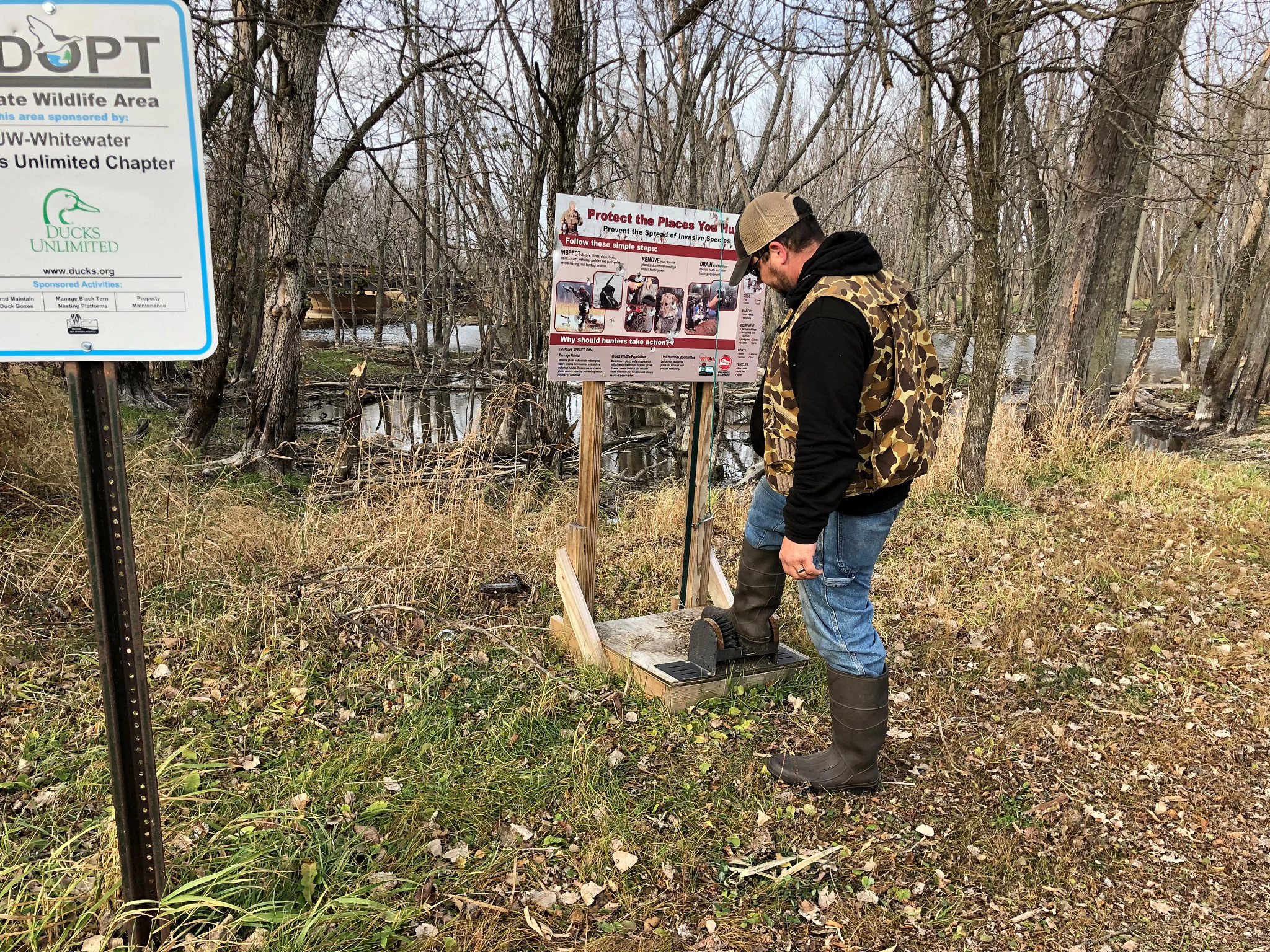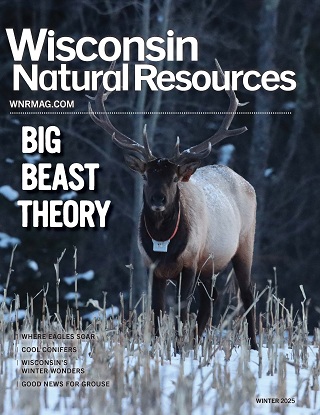Contact: Amy Kretlow, DNR Aquatic Invasive Species Monitoring Specialist
Amy.Kretlow@Wisconsin.gov or 920-838-2597
Protect Your Favorite Waterfowl Hunting Areas
Take These Steps To Stop The Spread Of Invasive Species
 Just a few minutes of preventative action can help preserve and protect hunting lands for generations to come.
Photo credit: Wisconsin DNR
Just a few minutes of preventative action can help preserve and protect hunting lands for generations to come.
Photo credit: Wisconsin DNR
MADISON, Wis. – The Wisconsin Department of Natural Resources (DNR) is asking waterfowl hunters to help prevent the spread of aquatic invasive species this fall.
Invasive species are nonnative plants, animals and diseases that cause great ecological, environmental or economic harm. Some have already been found in Wisconsin, while others pose a large risk of surviving and causing problems if they are introduced and become established here.
Just a few minutes of preventative action can help preserve and protect hunting lands for generations to come. Before launching into and leaving a waterbody, waterfowl hunters should:
- Inspect waders, boats, trailers, motors and hunting equipment, including boots, blinds and dogs
- Remove all plants, animals and mud to the best of their ability
- Drain all water from decoys, boats, motors, livewells and other hunting equipment
- Remove all seed heads and roots when using vegetation for duck blinds
- Never move plants or live animals, such as snails, away from a water body
In addition, the DNR and UW Madison Extension AIS Program often team up with the Wisconsin Waterfowl Association, Ducks Unlimited and other partners to place boot brush stations at access points near lake and river launches as well as some walk-in sites. If you are an organization interested in building and setting up your own boot brush stations, please contact DNRAISinfo@wisconsin.gov for more information.
Thank you to every hunter who follows the recommended prevention steps. Doing so before you leave the boat launch is keeping your favorite hunting spot safe and accessible for years to come.

